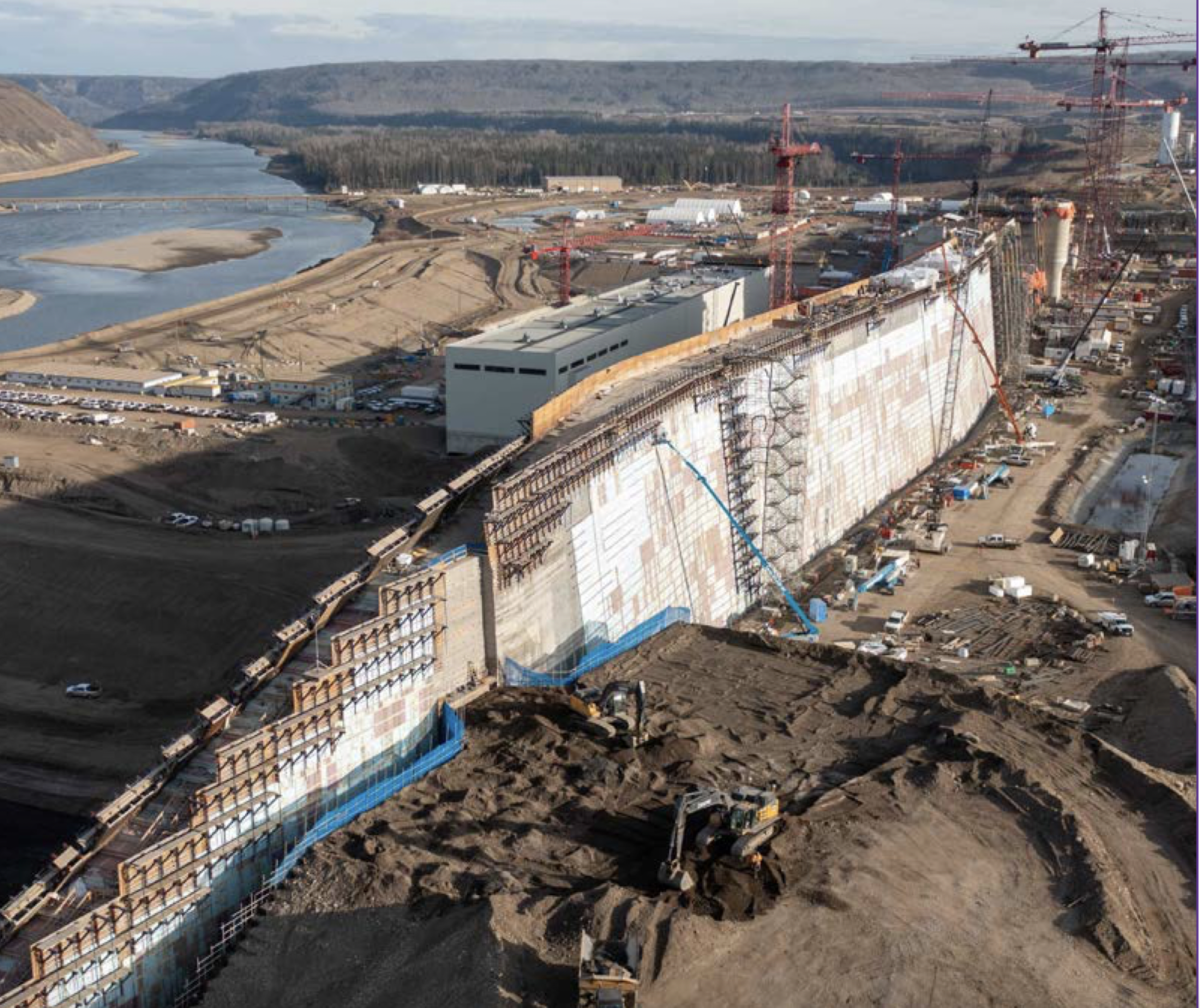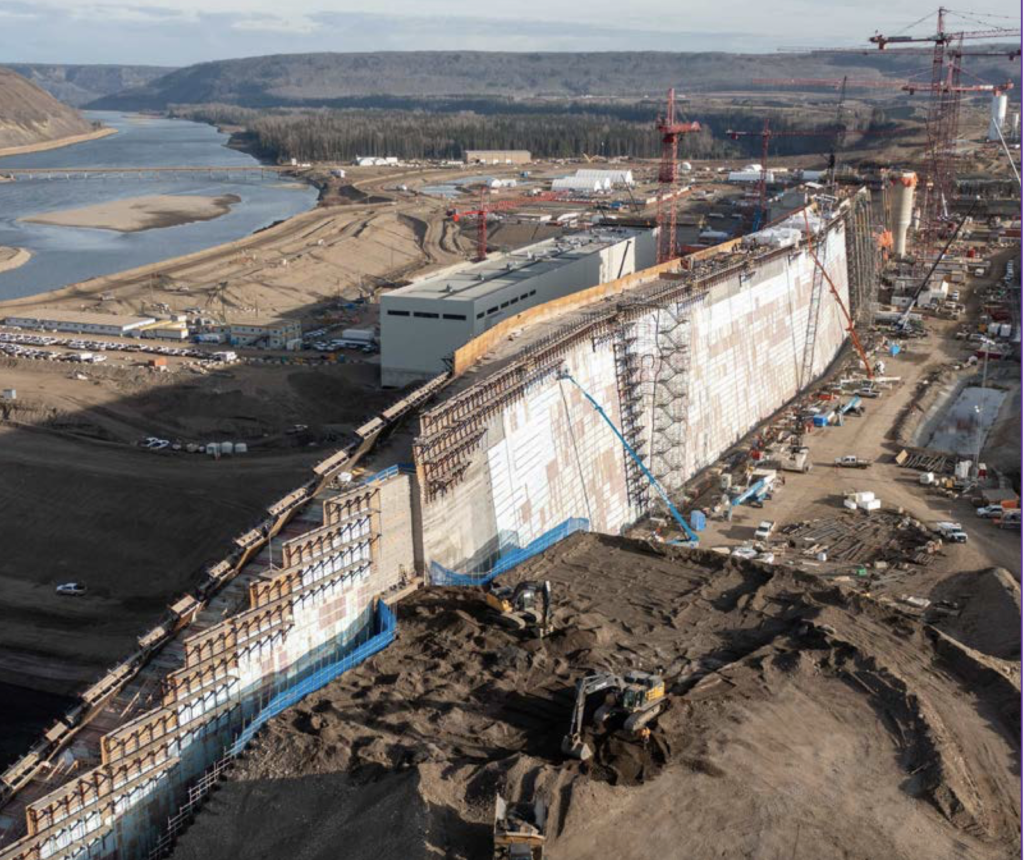
Bob Mackin
The NDP cabinet-appointed board of BC Hydro did not assess the potential for fraud at the $16 billion Site C dam project until after B.C.’s auditor general began to investigate.

Site C dam under construction (BC Hydro)
The stunning revelation is from Auditor General Michael Pickup’s April 26-released report. He found the Crown utility’s overseers finally approved a fraud risk policy on Jan. 12, while the audit was underway. By then, $8.4 billion of the budget had already been spent. It is scheduled for completion in 2025.
“But because the assessment was an initial one, and the Site C team has not been conducting ongoing fraud risk assessments, there is a risk that some fraud threats were overlooked,” said Pickup’s report.
Site C is not the first mega-project by 1961-founded BC Hydro, but it is the largest in the province’s history. One of its engineering contractors is SNC-Lavalin, the troubled Quebec giant that pleaded guilty to fraud in Quebec in late 2019 and was banned from bidding on World Bank projects between 2013 and 2021 due to corruption.
Earlier this year, BC Hydro finally identified a variety of potential fraud schemes common in large infrastructure projects, including payroll, overtime and expenses fraud and procurement and contracting fraud. The Global Infrastructure Anti-Corruption Centre, cited in Pickup’s report, said infrastructure projects are uniquely prone to corruption because the larger they are, the harder it is to compare costs and detect corruption, fraud and shoddy workmanship and materials.
BC Hydro’s chief financial officer, David Wong, is now in charge of fraud risk management. While staff are required to have code of conduct training, only staff in the internal audit services department had received fraud risk management training, the report said. Likewise, BC Hydro engineers and accountants would have received some training through their professional associations.

Michael Pickup, B.C.’s new auditor general (Nova Scotia)
During a teleconference with reporters, Pickup chose his words wisely. He declined to say he was surprised by the lack of policy, but said the report speaks for itself.
“My expectations would be that on a project of this size, you’d have all of this up and running at the beginning of the project and well in place,” Pickup said, adding that a fraud risk assessment is not a “one and done” exercise.
“You do them at the beginning of a project, and you do them as you go.”
Site C has been subject to two stalls during the life of Premier John Horgan’s government. After the 2017 election, the cabinet pondered whether to cancel construction. But Horgan announced the project would proceed with a $10.7 billion budget, $2.4 billion more than when it was announced in December 2014 by BC Liberal Premier Christy Clark. Horgan also announced a new $16 billion budget in February 2021 and blamed cost overruns on pandemic slowdowns and geotechnical challenges.
Pickup found that BC Hydro had some internal controls to defend against identified fraud, but there was no formal method to monitor and evaluate fraud on Site C. In the absence of a program, BC Hydro’s internal auditors examined procurement and contract management in 2017 and payment verification controls in fall 2021 and said they had no major findings.
By comparison, government ministries and central agencies had done more. As of January, 82.5% of staff had completed fraud awareness and prevention training.
BC Hydro employees have three ways to report misconduct: to their manager, the ethics officer or through a confidential third-party reporting system. One complaint was registered in 2021 through the third-party system and five directly to managers over a five-year period — one in 2016 and two each in 2019 and 2020. Four of the five cases reported to managers were policy violations.
“The 2016 case was deemed to be a theft of time, where an employee claimed, and received, compensation for work they didn’t perform, which is an example of fraud,” the report said.
Pickup said BC Hydro needs to do better because fraud is often discovered by employees and they need to safely report wrongdoing without fear of reprisal. Poorly managed investigations can cost more and harm reputations.
BC Hydro accepted the five recommendations, to implement the policy, train staff and management, conduct regular assessments, implement a fraud investigation procedure, and provide regular evaluations to the board of directors.
Support theBreaker.news for as low as $2 a month on Patreon. Find out how. Click here.











